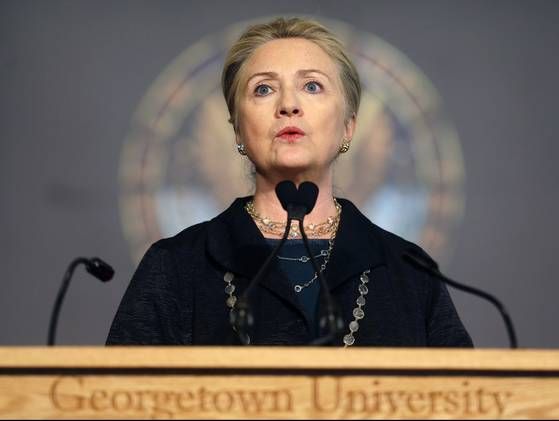 2012 brought into stark relief the ways in which energy influences U.S. foreign policy. Decisions on trade sanctions in Iran, natural gas exports, and drilling for oil in the arctic are good examples of scenarios in which domestic policy goals and U.S. foreign interests were deliberated by the current administration, and a course for the country’s energy and foreign policy future was laid out. Hillary Clinton, in speaking recently at Georgetown University, highlighted the ways in which energy development and consumption will continue to be an issue facing the U.S. and its foreign policy efforts, even as the U.S. continues to cut its reliance on foreign oil.
2012 brought into stark relief the ways in which energy influences U.S. foreign policy. Decisions on trade sanctions in Iran, natural gas exports, and drilling for oil in the arctic are good examples of scenarios in which domestic policy goals and U.S. foreign interests were deliberated by the current administration, and a course for the country’s energy and foreign policy future was laid out. Hillary Clinton, in speaking recently at Georgetown University, highlighted the ways in which energy development and consumption will continue to be an issue facing the U.S. and its foreign policy efforts, even as the U.S. continues to cut its reliance on foreign oil.
“Today, energy cuts across the entirety of U.S. foreign policy. It is a matter of national security and global stability. It is at the heart of the global economy. It’s an issue of democracy and human rights,” Clinton said. She spoke of the U.S.’ emerging role as a natural gas supplier in weakening Russia’s influence in Europe, and of her efforts to impose transparency rules that will require SEC-listed petroleum and mining companies to disclose their payments to foreign governments. The Secretary of State also pointed to regional conflicts, such as those between Sudan and South Sudan, and the potential conflict between Japan and China over energy resources in the South China Sea, as examples of how U.S. diplomatic clout is vital to reducing global conflict over energy supplies.
What actions can the U.S. take to strengthen its position as a leader in international energy policy? What are the future opportunities and challenges facing U.S. international energy policy?